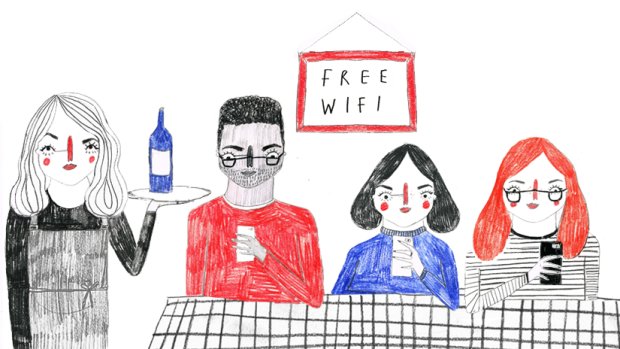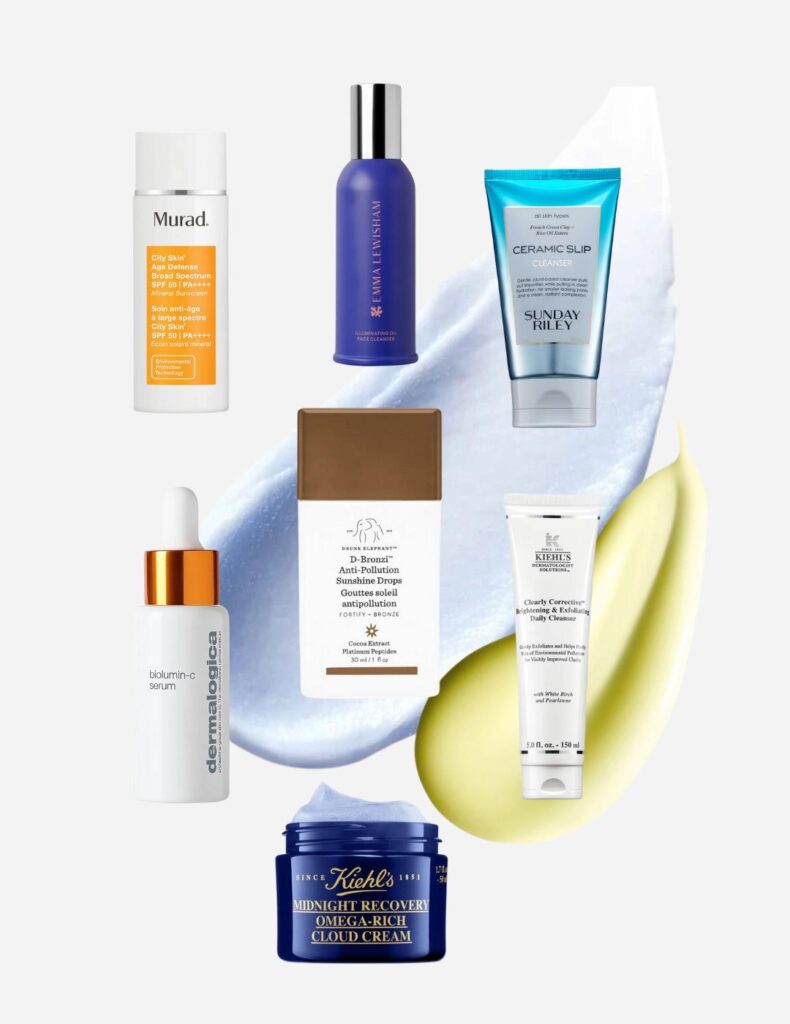
Social media can be as addictive as drinking or smoking and it’s impacting our social lives
It’s Wednesday night and I’m working my usual waitressing shift. Two friends walk in, wearing sky high heels and make up so meticulously applied it makes my winged liner, honed over the last decade, look like the work of a three-year-old with a sharpie. I show them to a table and take their order (making a mental note to YouTube how to do that faded eyebrow thing when I get home).
Shortly after receiving their two-for-one cocktails, the girls stand up out of their seats; ‘Are you looking for the toilets?’ I offer. ‘Oh, nah’ one replies. ‘We’re just taking photos’. For the duration of their stay I watch the friends with fascination as they take turns snapping each other in the myriad different poses most women between the age of 15 – 35 are familiar with – the ‘full length with a teapot’ arm, the cute cocktail-sipping selfie and the tilt your face down and pout. Hey, we’ve all coerced a mate into taking a candid (but really not candid) photo, because if the ‘Gram didn’t see your outfit, did you even wear it?
It wasn’t the amount of time the pals dedicated to taking photos that felt uncomfortable. It was the breaks in between, when they returned to their table, perching opposite each other, blue iPhone lights illuminating their faces as they sat, ferociously updating Instagram, Snapchat and Facebook, barely uttering a word to each other.
When you think about it, what has now become normal behaviour is actually an example of the extreme effect of social media has had on our relationships. During some of my shifts, I struggle to get basic human interaction with customers; forget eye contact, I’m often straight-up ignored when I try to take their order, because they’re too busy playing with their phones. I appreciate not everyone is in the mood for chit chat but, by being glued to your device to the point that you’re blocking out the world around you is serious. You miss important bits of information, you never know who’s walking past while you’re away with the likes and, perhaps most of all, it projects an air of rudeness.
It’s not uncommon for me to see couples texting during date night, and groups of four unable to produce sufficient conversation starters to keep them away from the temptations of their Instagram feed. The more I do this job, the more I truly believe we’ve reached a nadir: we care more about what others are up to and what they think of our lives as presented via our social media feeds, than actually hanging out with the people sat opposite us at the dinner table.
I don’t claim to be the perfect example when it comes to social media usage, in fact, I’ll admit that I probably have a full-blown addiction to Instagram. But, while I’m secretly pretty chuffed if Topshop regrams my OOTD and I pick up a few extra followers, I like to think I know when to let the opportunity of filming a top notch boomerang pass and enjoy the moment instead. When carrying out research for this piece, there was no shortage of people who are feeling similarly irked and troubled by the shortening of our social attention spans.
‘A couple of months ago I arranged to meet up with a friend for dinner who I hadn’t seen in, literally, years.’ Says Anna, 23. ‘I was looking forward to catching up with her after so long, but ended up gutted because she spent most of the evening distracted by refreshing the Facebook app on her phone.’ Frustrated, Anna challenged her distant behaviour, ‘I called her out on it because her constant scrolling meant she barely paid attention to our conversation. When I did, she became really defensive.’
It’s the manner in which Anna’s friend repudiated any kind of challenge to her behaviour that hints at a deep-rooted addiction, but she’s not alone in it. Author and affiliate of New York University’s Psychology department, Adam Alter, argues in his book Irresistible: The Rise Of Addictive Technology and the business of keeping us hooked’, that the nature of social media and technology is causing a rise in ‘behavioural addictions’ that can be as as compulsive as drinking or smoking. Alter describes how our Facebook and Instagram feeds are specifically engineered to have that ‘bottomless’ quality that encourages you to keep scrolling, meaning you could in theory keep doing so for hours on end. While most older technologies (TVs, games consoles etc) have end points built into them that encourage you to stop, become bored and do something else (Alter calls them ‘stopping rules’), social media platforms lack these.
Because we’re never bored, we’re less likely to stop and move onto something else and, as a result, we’re quite happy to stay at home staring at a screen because there’s nothing telling us to stop and go out socialising instead. ‘The bottomlessness of the news feeds on Facebook, Instagram and Snapchat today,’ says Alter ‘means that the stopping rule has been replaced by the default continuation rule. And it’s part of what makes these experiences so hard to manage.’
The scarcity of these stopping rules means we now have to actively make the choice between real life meet ups with friends and social media/technology. Because it’s easier to sit mindlessly watching a screen that plays episode after episode of Gilmore Girls, we’re increasingly choosing the latter, and it’s having a knock-on effect on our social lives and the value of our interactions with other human beings.
While it’s funny to share memes depicting feeling happy when your mate cancels so you get a night in watching Pretty Little Liars instead, this attitude is a relatively new phenomenon and one we should attribute more concern to than we do. Before the days of the internet, social media and binge-watchable Netflix series, we would have chosen to go out and meet our friends because, simply, there was nothing else to do. Now, ironically, our obsession with checking what other people are up to on social media, is causing us to miss out on what those closest to us are doing in the real world.
What can we do to ensure we don’t slip into these antisocial behaviours at the hands of our social media platforms? While the obvious answer is to simply put your phone away, sometimes it’s easier said than done. As a result, some of us are getting creative about minimising phone use. ‘My group of friends and I have introduced a phone ban at social gatherings.’ says Ellie ‘texts are more flexible, for example letting your family know what time you’re going to be home, but anyone caught on Instagram, Facebook, Snapchat etc. has to buy a round of drinks. Initially we implemented as a funny way to get us more drunk, but it ended up being really fun so we’ve continued the tradition.
‘We also all have this app on our phones that automatically shares photos to a group Dropbox,’ Ellie continues ‘so there’s no temptation to upload photos to the internet while we’re out.’ It’s a shame we’ve got to a point where these measures are necessary, but if it makes us a bit more present in social situations, then it’s got to be a smart idea.
So, the next time you’re having Friday night drinks after work, keep your phone in your bag, if for no other reason than to prevent it slipping out of your hands into your G&T – yep, I’ve seen that one happen too.










